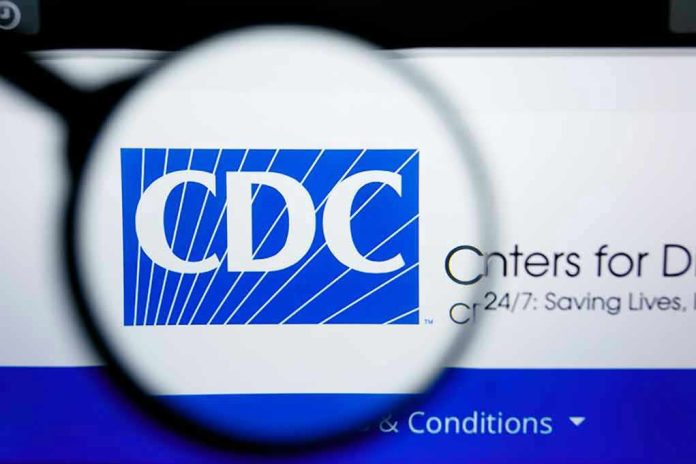
Four top CDC officials resigned in protest after the abrupt firing of Director Susan Monarez, igniting concerns over political interference and the future of scientific independence.
Story Snapshot
- Senior CDC leaders, including Dr. Demetre Daskalakis, quit after Director Monarez was ousted.
- Resignations cited political interference in vaccine and LGBTQ policy under Trump’s administration.
- HHS Secretary Robert F. Kennedy Jr. drove leadership changes to align with new policy priorities.
- Public health experts warn the moves threaten CDC credibility and core scientific principles.
CDC Leadership Crisis Spurs Resignations
In August 2025, the Centers for Disease Control and Prevention faced a seismic leadership shakeup as four senior officials resigned following the ouster of Director Susan Monarez. Dr. Demetre Daskalakis, renowned for his role in the 2022 monkeypox response and advocacy for LGBTQ health, was among those departing. These resignations came in direct response to the abrupt firing of Monarez, a Senate-confirmed director, and signaled deep unrest inside the nation’s top public health agency. The Trump administration, citing misalignment with its agenda, installed Jim O’Neill as acting CDC Director, further fueling debate over the agency’s direction.
https://t.co/2V785Axbph Former “Monkeypox Czar” Quits CDC Over Vaccine, LGBTQ Policy Changes
— SASSYCHICK (@KT07500539) September 2, 2025
The officials’ public statements highlighted their concern about increasing political influence over CDC operations, especially in vaccine policy and LGBTQ health initiatives. Dr. Daskalakis declared he could no longer serve “because of the ongoing weaponizing of public health,” a sentiment echoed by other departing leaders. These resignations marked a protest against what they described as a crisis of scientific independence, warning that top-down decisions undermined evidence-based policy and the agency’s ability to protect public health for all Americans.
Political Pressure Redefines CDC Mission
The leadership changes were orchestrated by President Trump and HHS Secretary Robert F. Kennedy Jr., who emphasized a renewed focus on the CDC’s “core mission.” Under their direction, policies shifted to reflect conservative priorities, including new approaches to vaccine distribution and a reevaluation of LGBTQ health programs. The administration’s moves were intended to align the CDC with its vision for public health, but critics argued these changes were driven by ideology rather than scientific consensus. The removals and resignations exposed the vulnerability of federal agencies to political agendas, raising alarm about the erosion of independent expertise at a critical moment for national health policy.
Public health experts and former CDC officials expressed grave concern over the implications of these actions. Many warned that the turmoil could lead to a “brain drain,” with the loss of experienced leaders jeopardizing the agency’s effectiveness in responding to health crises. Some noted the parallels to previous episodes of political interference during the COVID-19 pandemic, cautioning that history could repeat itself if scientific integrity continues to be undermined. The broader debate over the CDC’s future highlights the tension between political oversight and the need for unbiased, expert-driven guidance in safeguarding Americans’ health.
Impact on Public Health and Trust
The immediate fallout from these resignations is disruption in CDC leadership, potentially delaying critical public health initiatives. Long-term consequences may include diminished public trust, challenges in recruiting top talent, and weakened partnerships with state and international health organizations. LGBTQ communities and those relying on CDC guidance for vaccines face uncertainty as programs are reevaluated or scaled back. Experts fear the politicization of health policy will hinder the agency’s ability to respond effectively to future threats, leaving the nation less prepared and more divided over foundational scientific principles.
The Trump administration maintains that its actions are necessary to restore alignment and accountability at the CDC, but critics remain wary of government overreach and the precedent set by sidelining expert voices. As the agency undergoes further transition, the nation watches closely, aware that the stakes for constitutional values, individual liberty, and effective governance have rarely been higher.
Sources:
3 CDC Senior Leaders Quit Following Agency Leader’s Ouster
Senior CDC Officials Resign After Monarez Ouster, Cite Concerns Over Scientific Independence
Profiles: CDC Officials Who Resigned in Protest
Former CDC Immunizations Chief: ‘Harm Coming’ With RFK Jr. at HHS




